Existing ways of thinking are not good enough
Though not an early adopter by any stretch of the imagination, I’m looking forward to using this medium to talk about confidence–backbone–what it is, the skills that build it, and what it can accomplish in the world. I’ll also deal with things that are not confidence, though sometimes they masquerade as such. Things like ignorance, arrogance, and cruelty. Of course I can only write about what I see from my seat in the arena of life–your seat is different, so what you see is likely to be different, too. I appreciate strong, respectful debate because it makes us all smarter and more aware of how we influence each other and the world around us. I hope you’ll participate!
How we think has a lot to do with how confident we are. Here’s a neat piece from Edward De Bono, management consultant, on that very topic. Enjoy! And come visit often.
From Edward De Bono: Existing ways of thinking are not good enough
The rear left wheel of a motor car is excellent. There is nothing to criticise. But if you believed that all you needed on a motor car was the rear left wheel, then there would be something wrong with your belief, not with the wheel. I use this analogy when pointing out that our existing thinking methods and habits are excellent, but not enough.
Far too many executives believe that management thinking consists of continuity and problem-solving. This means keeping things going as they are and then solving the problems that arise from time to time.
So management thinking is all about problem-solving. But what if something is not a problem?
Even when there is no general complacency, there is difficulty in thinking about things which are perfectly satisfactory.
There are at least three situations involved here:
Situation One
‘The good is the enemy of the best’. This means that we stop thinking when we have reached a ‘good result’. Had we gone on thinking a bit more, we might have found an even better result.
We do not need to stop thinking because we have an adequate answer. There are often more answers than just one. So we need to develop the habit of continuing to think about the matter even when we have an adequate answer.
How much time, effort and energy do we put into finding the ‘better answer’? Often there is a need for choice, for decision and for action. While we may spend some time looking for a better answer, this time is limited. Yet even a little time spent looking for a better answer is not time wasted. Now and again a better answer will indeed be found.
Situation Two
In this second situation we think we know that there are other possible ways. The difficulty is in persuading others to explore these ways.
It is not possible to start from the deficiencies of the present approach, because none may be apparent. It is necessary to focus on the values and benefits provided by the other ways.
A comparison is then made between the values offered by the other methods and the values offered by the existing approach. Big differences may now be seen.
Situation Three
Here the matter being considered is excellent in itself. It is not going to be changed or replaced. It is now an issue of saying that ‘it is not sufficient’. One wheel on a car is excellent – but it is not sufficient. Traditional thinking is excellent – but it is not sufficient.
In none of these situations is there the driving force of criticism. If you succeed in showing that something is wrong or inadequate, then there is the motivation to find something better.
The lateral thinking technique of ‘challenge’ is designed to prevent the mind sliding smoothly down the existing patterns.
Challenge is a powerful tool, but it does need discipline. If challenge is only used to focus on ideas that are weak or faulty, then its power is lost. Challenge may be used to seek alternatives even to the very best ideas.
Follow this link to learn more from Edward de Bono about lateral thinking and ‘challenge’ with a trial copy of the November issue of Letter to Thinking Managers. Or copy and paste this URL into your browser:
http://www.thinkingmanagers.com/
Categories: General Advice, Leadership